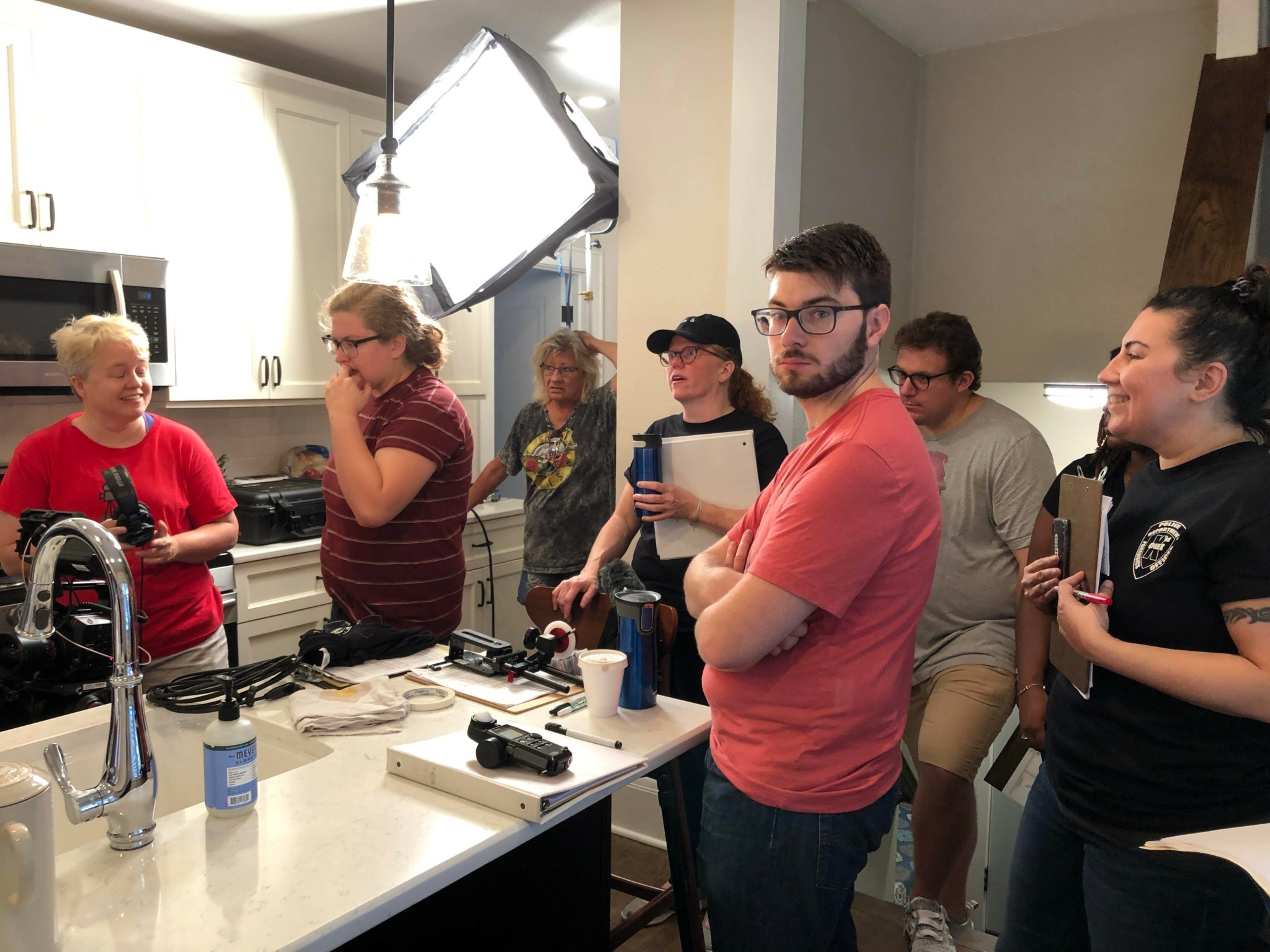We were lucky to catch up with Melody Herr recently and have shared our conversation below.
Hi Melody, thanks for joining us today. One of the things we most admire about small businesses is their ability to diverge from the corporate/industry standard. Is there something that you or your brand do that differs from the industry standard? We’d love to hear about it as well as any stories you might have that illustrate how or why this difference matters.
I don’t wait for gatekeepers anymore. I’d love for a studio to hire me or option one of my projects, but I also think it’s important to actively pursue your dreams instead of waiting for someone else to give you permission. When I was younger, I let arbitrary things define me. I didn’t believe being a writer or working in Hollywood was possible for someone like me. I’m done thinking that way.
Now, I create my own opportunities – whether that’s writing and producing a podcast like The Farm or pulling together a team to bring a script to life. That independence allows me to experiment and collaborate in ways that feel authentic. Some of the best ideas have come from people who wouldn’t usually have a seat at the table.
And maybe my age is part of what makes me different too. A lot of people accept the idea that once you hit a certain stage in life, you’re supposed to step aside. I don’t buy into that. My lived experience makes me a stronger storyteller. Better late than never, right?
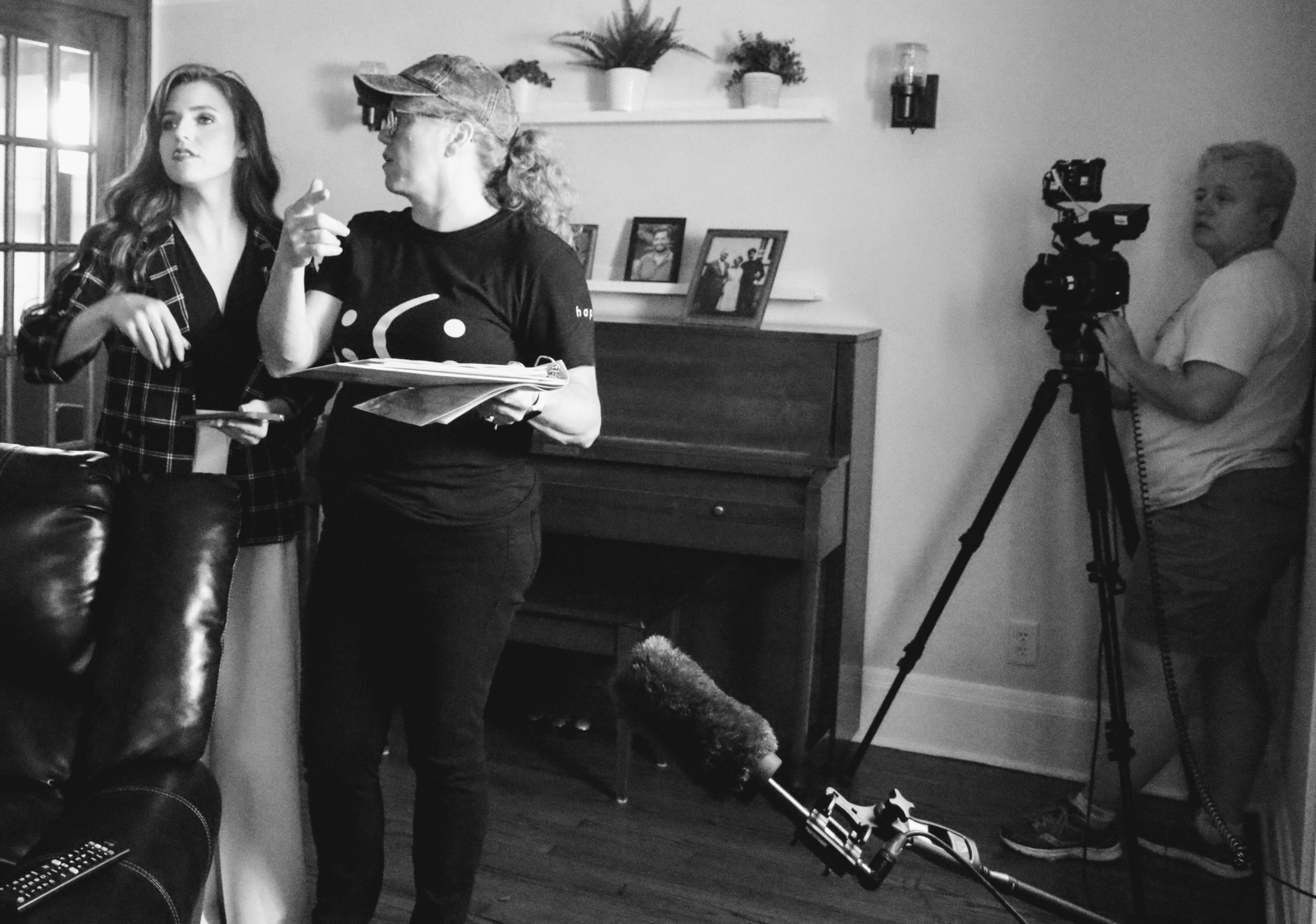
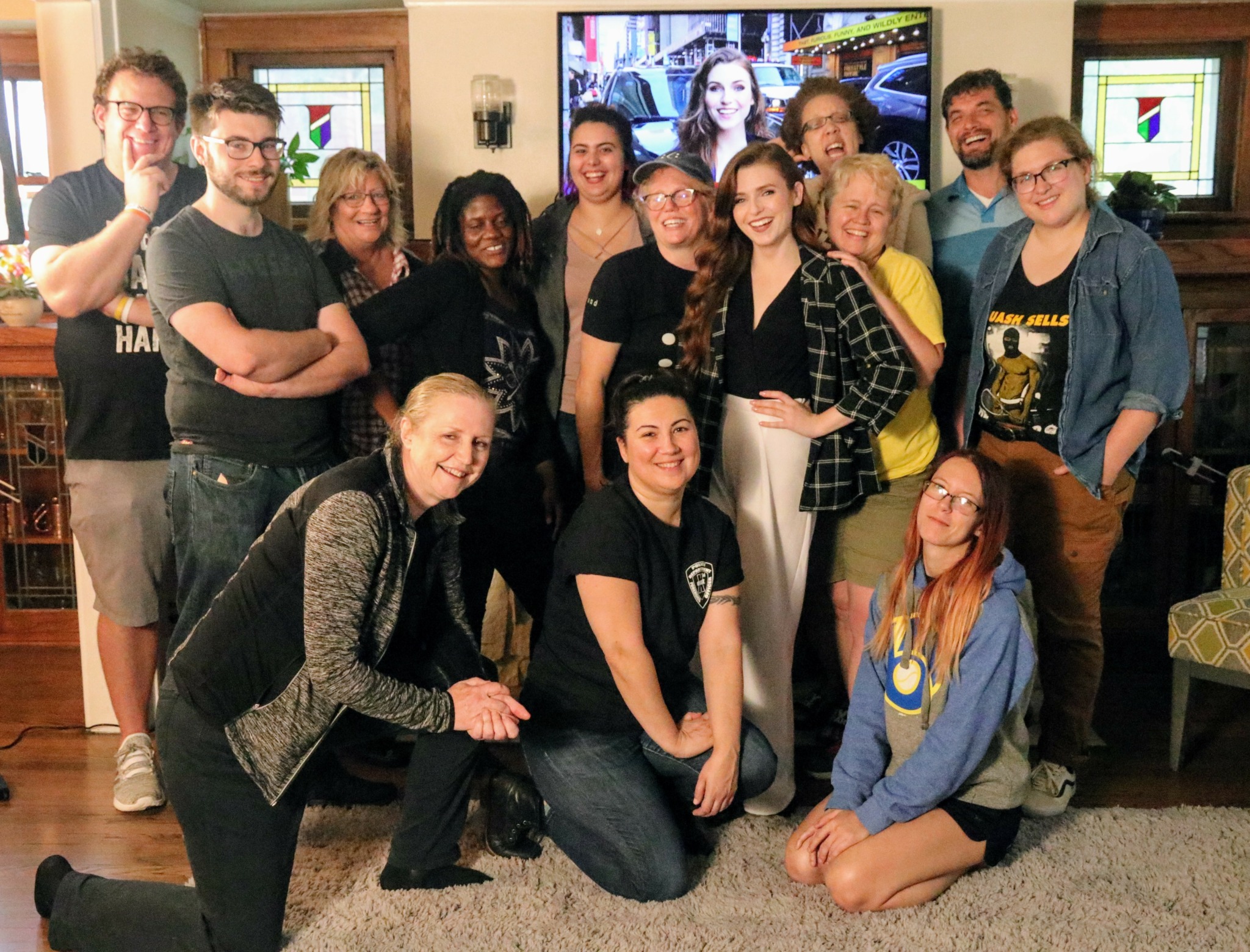
Great, appreciate you sharing that with us. Before we ask you to share more of your insights, can you take a moment to introduce yourself and how you got to where you are today to our readers.
I came to screenwriting through my daughter, Ellysa Rose. She’s an actress, singer-songwriter, and music producer. When she first started acting, I was the one helping her prep for auditions, which meant I was reading a lot of scripts. After a while, I thought, ‘I could do better than this.’ So I co-wrote my first script with her. We even raised money to shoot a pilot presentation and had a development deal. It eventually died in development, as projects often do, but I was hooked. We produced three webisodes and called it The 101 — named after the LA freeway and a little nod to those college courses like Psych 101. That was the moment I knew I wanted to pursue this seriously.
At first, I wasn’t formally trained. I like to joke that I went to Google University because I researched everything I could about writing and production. Later, I earned my MFA in Writing for Film and Television at Emerson College, where I graduated top of my class. I even interned at Samuel Goldwyn, where I probably hold the record as the oldest intern they’ve ever had. It gave me a front row seat to the development and distribution process.
When I moved to Milwaukee, I became one of the founding members of the Milwaukee Filmmakers Alliance and started a writers group that still meets today, even though some of us have moved away. During the pandemic, I began teaching, and I also had the chance to produce a feature film called Diffraction with my producing partner, Kris Holodak. We had a budget under 100k, but created something that looks like it cost ten times that.
Along the way, I’ve written and produced several award-winning short films. One of them, X’ed Out, won Best Drama at the London International Short Film Competition. That one is close to my heart because it takes on tough themes like substance abuse, suicide, and grief — subjects we don’t talk about enough.
Right now, I’m most proud of The Farm, a mystery-thriller podcast I created and produced. It’s been two years in the making and I’ve worn almost every hat on it except composer. The first three episodes launched in September and the rest are rolling out weekly until all nine are out. You can listen at listentothefarm.com or find it on any major podcast platform.
If there’s one thing I want people to know about me and my work, it’s that I don’t sit around waiting for someone to tell me it’s okay to create. I love collaborating, I love building teams, and I love finding ways to tell stories that connect. That’s been the heart of everything I’ve done so far, and it’s what keeps me moving forward.
And next up, I’ve been hired to direct a TV pilot this winter, which I’m really excited about. It feels like every project has built to this moment, and I can’t wait to see where it leads.


We’d love to hear a story of resilience from your journey.
When we started making The Farm, there was no big funding behind us. No studio. No safety net. Just passion and a handful of people who believed in the project. Which meant leaning on interns, favors, and a whole lot of scrappiness.
At first, things looked solid. We had an editor lined up, a professor at the college where I was teaching. But once we got into post, he admitted he was in over his head and dropped out. That could have ended everything.
Instead, my student intern, Sebastian Jones, stepped in. He ended up doing the dialogue edits for all ten episodes. But doing that plus the sound effects was too much for a full-time student, so I reached out to my community of industry friends and eventually found another intern to help.
That’s when Alexander Weed came on board. He jumped in to layer sound effects. Enthusiastic, talented, and exactly what we needed. He carried us through the first few episodes, but after he graduated, he was gone too. And here’s where it got interesting — once I saw the whole thing cut together, I realized the story actually worked better as nine episodes.
With no sound effects editor on board, I realized it was going to be up to me. So, I taught myself Adobe Audition. I fixed things, tightened pacing, polished those early episodes, and kept us moving forward. I moved scenes around, cut a few, condensed others, and reshaped the flow until it finally clicked.
But I knew I couldn’t carry the sound design for the rest of the series. That’s when a screenwriter friend connected me with a sound person. He passed me to another, who passed me to another — it felt like speed dating for sound editors — until I finally landed with Enoch Quintanilla. Enoch not only mastered every episode but has been helping us finish the last ones strong. By the end of it, I felt like I was collecting sound editors the way some people collect baseball cards.
Nothing about the process was smooth. But that’s indie storytelling. You keep adjusting. You lean on community. And you push through the setbacks. For me, resilience has meant saying yes to the messy parts, learning new skills on the fly, and refusing to let the story die.

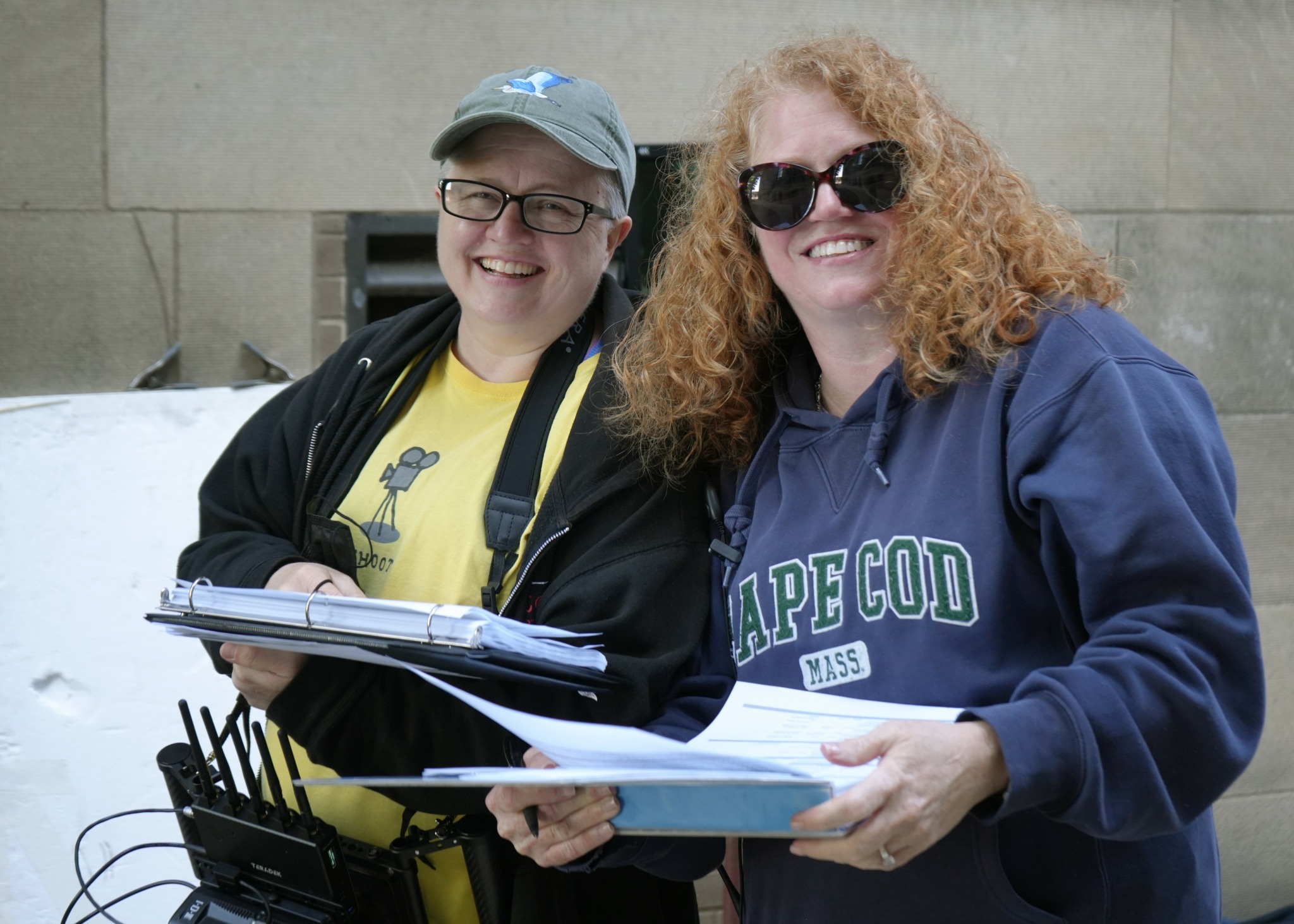
What do you think is the goal or mission that drives your creative journey?
My goal is simple: I want to tell stories that feel real. Especially about women who are complicated, determined, sometimes a little messy — because that’s real life. I’m not chasing formulas. I’m chasing honesty.
I also believe in collaboration. Some of the best moments in my projects have come from interns or first-timers who brought an idea no one else had thought of. I love that. I want everyone at the table to feel like their voice matters, because it does.
And honestly, I don’t wait around for someone to give me permission to create. Life’s too short. If there’s a story worth telling, I’ll find a way to tell it. That’s the mission.
I want my work to say what I wish someone had said to me years ago: your voice matters, and your story is worth telling. Write like the gatekeepers aren’t watching. Because they aren’t — yet.
Contact Info:
- Website: http://www.lilfishentertainment.com
- Instagram: https://www.instagram.com/write_herr
- Facebook: https://www.facebook.com/melody.herr
- Linkedin: https://linkedin.com/in/melodyherr
- Twitter: https://x.com/Write_Herr
- Youtube: https://www.youtube.com/@LilFishEnt
- Other: https://www.tiktok.com/@write.herr
https://listentothefarm.com/
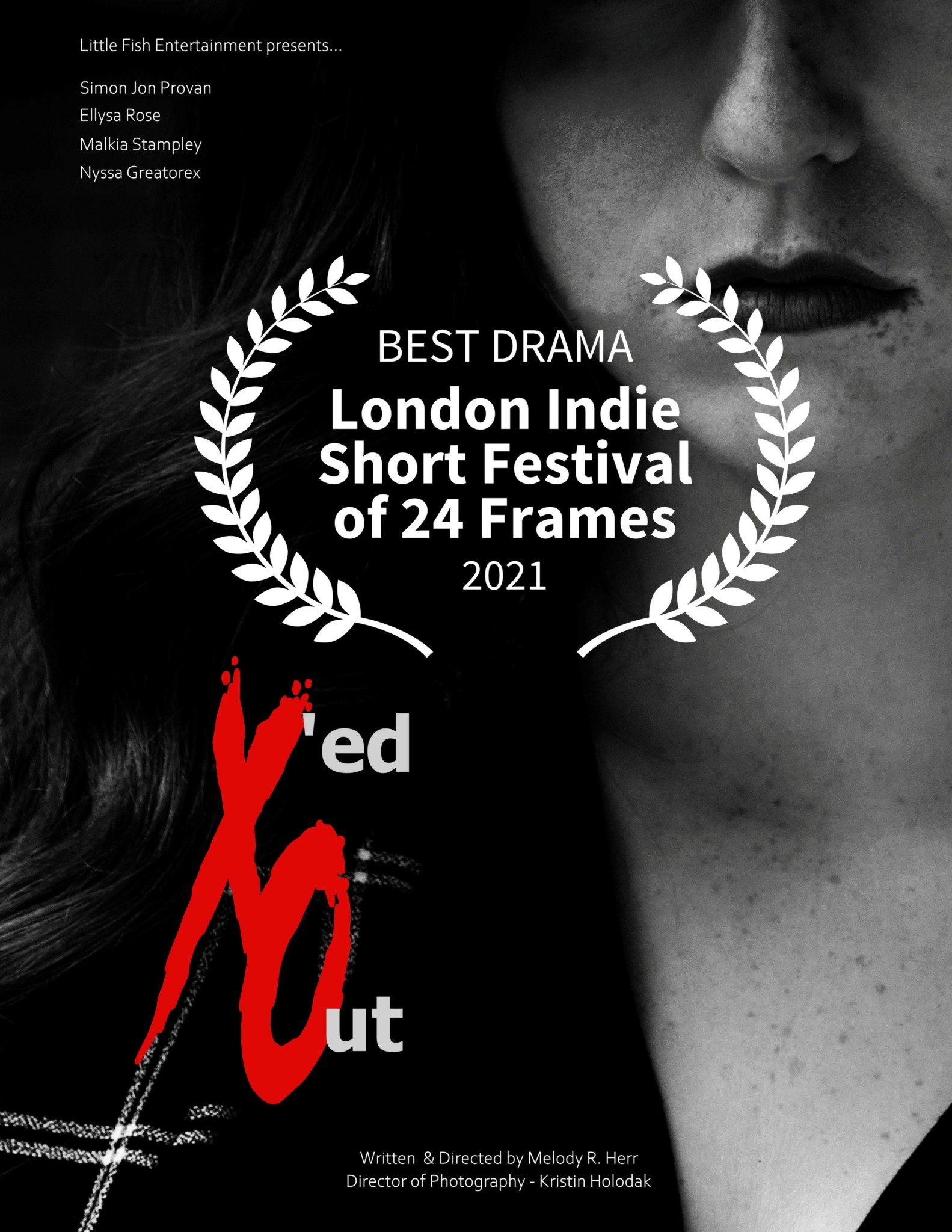
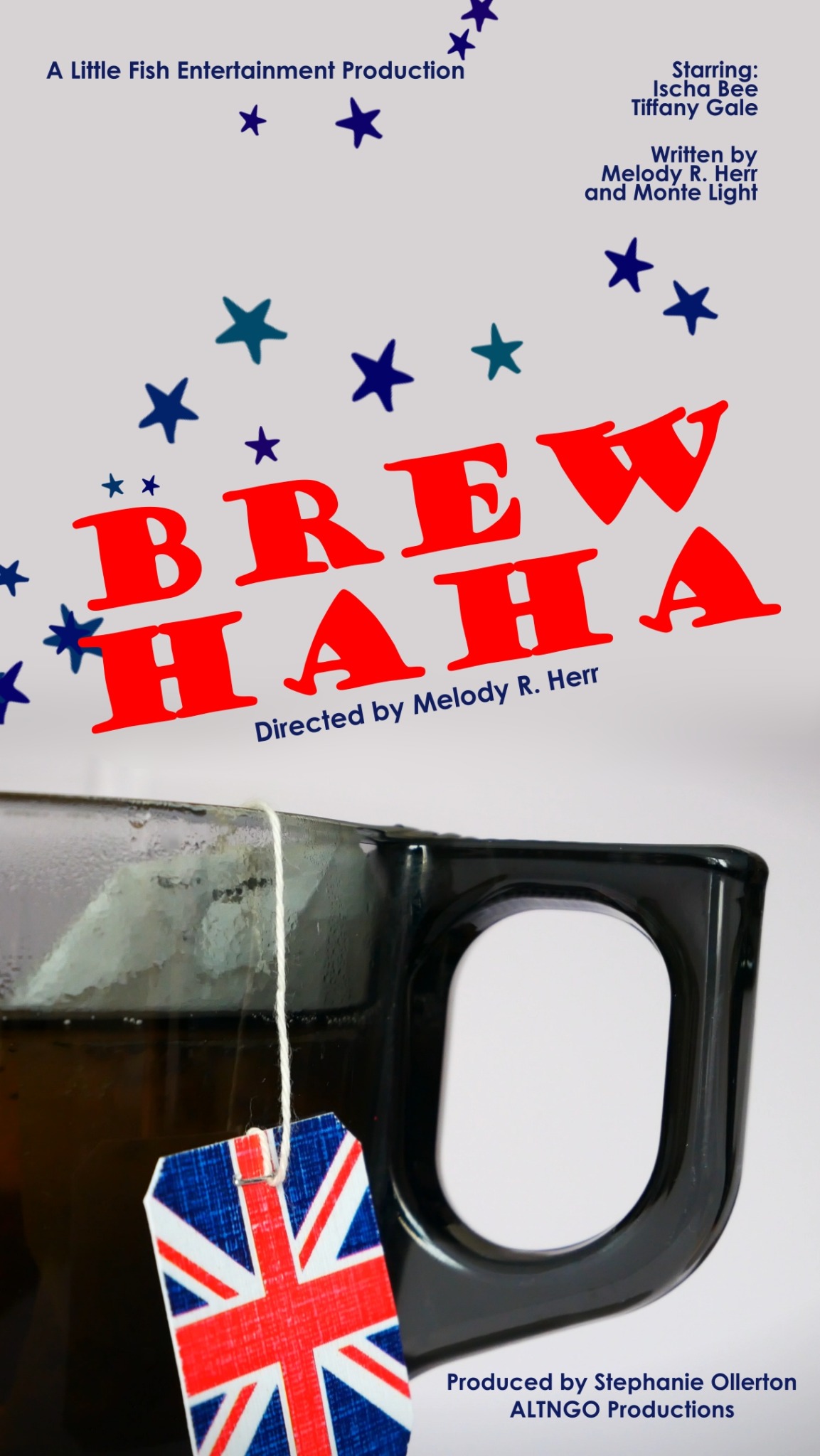
Image Credits
Kristin Holodak, Ellysa Rose


